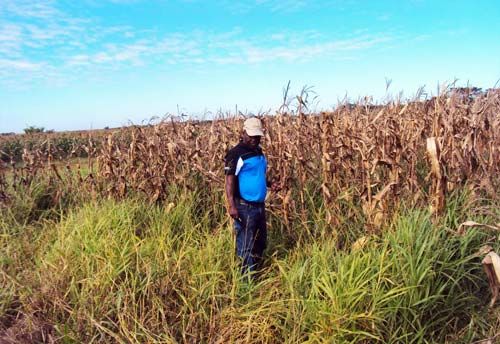
SIMLESA-Mozambique Learns More about Conservation Agriculture Technologies in Brazil
Three agriculturalists from the Sustainable Intensification of Maize-Legume Cropping Systems for Food Security in Eastern and Southern Africa (SIMLESA)–Mozambique made a training visit to Brazil on 3-13 June 2015.
The objective of the visit was for the three researchers to acquire conservation agriculture (CA) skills, with a special focus on soil health and climate change. The training sessions were also expected to give participants the opportunity to share their knowledge and experience with their Brazilian counterparts at EMBRAPA sites.
According to team leader Domingos Dias, SIMLESA-Mozambique National Coordinator, “By visiting and interacting with farmers, observing trials and having discussions with CA advisors, researchers, policy makers and agriculture industry representatives, we gained new knowledge of CA technologies.”
During the 11-day visit, participants were presented with real-life CA challenges so they could solve them interactively. Having learned the required theory and facts through demonstrations, question-and-answer sessions and multimedia presentations, they are now expected to apply these technologies in their respective countries.
Smallholder farmers in Mozambique are affected by the poor farming methods they practice, such as late weeding and inefficient residue application, and lack farm mechanization. The participants learned to use and maintain agro-machinery, such as direct seeders and rippers, as well as when to plant forage crops such as Brachiaria, which produces much biomass and whose deep root system plays a critical role in improving soil properties.
“We learned very useful practices and will test some of them under our conditions. The training in Brazil presented alternative uses of residues and rotations based on soil properties suitable for Southern African countries,” said SIMLESA-Mozambique participant Custodio Jorge.
Both farmers and extension staff who participated in the first phase of SIMLESA (2010-2014) lacked basic skills and knowledge of CA farming systems. The second phase of the project (2014-2018) is focused on filling this gap through training.